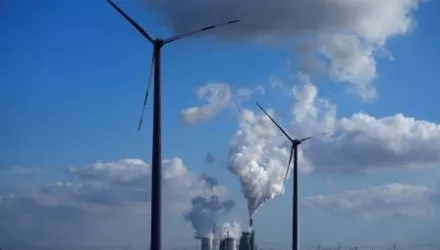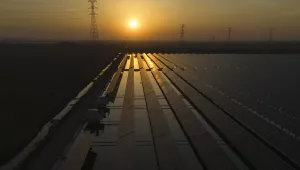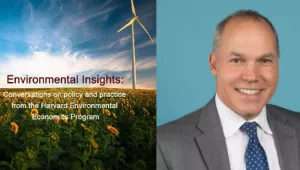Memorandum to the Friends of SDI on 26 January 1996,
MEMORANDUM
To: Friends of SDI
From: Graham Allison
Date: January 26, 1996
Subject: Update on the Current Russian Political Scene after Russian Duma Elections
In response to requests from friends, Harvard''s Strengthening Democratic Institutions Project (SDI) has prepared this brief summary of the political scene in Russia. Bottom lines:
- The scheduled June presidential elections promise to be the most important in Russia''s history - more important for Americans and Europeans than our presidential elections in November.
In the aftermath of the parliamentary "primaries," reformers are clearly serious contenders to rule Russia after June - but in a fight for their lives.
Russian voters'' views and motivations reflected in the December elections were more normal than peculiar: aged pensioners voting for advocates of increased pensions, security, and order; individuals who believe that democratization and marketization are good or inevitable voting for Chernomyrdin or Yavlinsky; those moved by humiliation or angered by Russia''s loss of international prestige voting for Zhirinovsky.
The December elections were freer and fairer than observers expected, but a more substantial effort to assure free and fair presidential elections will be required.
As the contenders now organize their presidential campaigns, all are interested in learning from best - and worst - practices in the West about strategy and tactics.
All parties have concluded, correctly, from the results of the Duma campaign that campaign organization, strategy, and tactics are as critical in Russia as in any other political system.
In sum: Russia now stands at a fateful fork in the road. Choices made in the next six months will prove decisive.
I. December''s Duma Elections: What Happened?
The winners: December''s parliamentary elections clarified the voting blocs in Russia: Communist, Nationalist, and reform/government. Only four parties cleared the 5% hurdle to win representation from party lists in the new Duma: Communists; Zhirinovsky''s Liberal Democratic Party (nationalists); the government''s Our Home is Russia; and Yavlinsky''s Yabloko bloc (reform). The number of opposition parliamentarians remains approximately the same, but the Communists have replaced the LDPR as the largest faction in the Duma.
- The Communists were successful because the slice of the population who are their constituents pensioners, elderly, and unemployed turned out in high numbers to offer their support. Should anyone be surprised when individuals who have seen their real income drop by 90% and their lives turned upside down respond to the party which most credibly promises increased pensions, payment of back wages, improved health care, order, and respect?
The government lost big: nine out of ten voters rejected Our Home is Russia. The party did better within the beltway the Ring Road in Moscow than in the regions. The "party of power" failed the Ronald Reagan test: when voters asked themselves whether they were better off than they were four years ago, the vast majority consulted their own lives and responded no.
Zhirinovsky''s bloc in parliament fell from 63 to 51 deputies, but even this showing counted as one of the biggest surprises for pundits in Russia and the West, ourselves included. The cause: Lebed''s personal popularity in the polls failed to translate into votes for the poorly-organized Congress of Russian Communities (KRO).
Voter Turnout: Almost 50% higher than in American congressional elections (39% in our landslide election of 1994). Two out of three, or some 65 million registered voters, went to the polls.
Were Elections Free and Fair? Consensus judgment: yes. Best evidence for this: the losing parties, with notable exception of Lebed''s, declined to challenge the results. OSCE observers reported only isolated instances of questionable activity.
II. Implications of Duma Elections
- Government Personnel Changes: Despite Yeltsin''s and Chernomyrdin''s assurances that the elections would not effect the cabinet, Andrei Kozyrev (Foreign Minister), Sergei Filatov (Presidential Chief of Staff), and Anatoly Chubais (First Deputy Prime Minister for the Economy ) - all liberal reformers - are out. Former foreign KGB chief Yevgeny Primakov, hawkish Nikolai Yegorov, and colorless Vladimir Kadannikov are in.
Yeltsin Policy Shifts: Personnel changes, promises to pay back-wages and pensions, and the tough line on the Chechen hostage crisis last week demonstrate that Yeltsin is seeking to steal some of the Nationalist/Communist''s thunder as he moves into his own presidential campaign.
Major Candidates for the Presidency Identified (see section IV): Gennady Zyuganov (Communists), Vladimir Zhirinovsky (Nationalist), General Alexander Lebed (Nationalist), Boris Yeltsin (or chosen successor - likely PM Victor Chernomyrdin) (Government), and Grigory Yavlinsky (Reform).
III. Will the scheduled June 16 Presidential Elections Be Held?
- The $64 Question: Our SDI Project is on record for the last six months judging the odds to be no better than 50-50.
Yeltsin''s Cold Calculus: When Yeltsin and his team analyze his popularity (single digits); the government performance in the December elections; and the results of that election, they will inevitably confront three alternatives: (1) Hope, (2) Steal, or (3) Postpone. Only the third offers any assurance for the Yeltsin apparatchiks to stay in power - and out of jail.
New Russians'' Perspective: The New Russians, the elite economic and political classes, have a growing attachment to the current "stability" and will thus prefer a continuation of the current government. They will be major advocates of postponement.
The Majority''s Perspective: As the Duma elections shows, the presumption of democratic elections is taking hold with the Russian population. But the only Russians who have an intense stake in holding scheduled presidential elections are Yeltsin''s competitors and their allies.
IV. Who will be the Presidential Candidates?
- Gennady Zyuganov (Communist Party): A middle-level party manager from the Soviet era who became the party leader after the Communist party ban was lifted. He led his party in the last parliament and is credited with both rebuilding the Communist party and orchestrating the party''s victory in December. Zyuganov is a savvy politician who tailors speeches to fit the audience, be it American businessmen or rural industrial workers. However, his lack of charisma has prompted some to suggest the Communists should run a more dynamic candidate for president.
Boris Yeltsin (or his stand-in, e.g. Victor Chernomyrdin) (Our Home is Russia): President Yeltsin or Prime Minister Chernomyrdin will represent the government in the election. Most believe Yeltsin will seek reelection, but his health is uncertain. (On February 2, Yeltsin will turn 65 - eight years beyond the current life expectancy for Russian males!) He has opened a campaign office headed by two senior members of his executive staff. His campaign strategy, as seen by the personnel changes and his hard-line stance in Chechnya, is to run as a strong leader who is confrontational and can make difficult decisions. Should Yeltsin''s health falter, Chernomyrdin would likely step in. Chernomyrdin, an ally, but not always in agreement with Yeltsin, would likely run as a moderate technocrat who can ensure continuation of the current "stability."
Vladimir Zhirinovsky (Liberal Democratic Party): Zhirinovsky''s strong political showing in December makes him the leading nationalist presidential candidate. Zhirinovsky''s hard line stances will continue through the spring and will resonate well with voters who feel humiliated by Russia''s loss of prestige.
Grigory Yavlinsky (Yabloko): Yavlinsky is young and popular with the Russian public, but some question his readiness for the job. His party has been built as the democratic opposition to the Yeltsin government, which will make it nearly impossible for any reconciliation between the government and Yavlinsky supporters. This will unfortunately split reform votes, who, despite differences between Yeltsin and Yavlinsky, clearly have more in common than either does with the Communists or Nationalists.
General Alexander Lebed (Congress of Russian Communities - KRO): Although still one of Russia''s most popular figures, KRO''s failure to meet the 5% hurdle to enter the parliament significantly damaged the General''s star power. Lebed has charisma, but lack of a political base in the Duma and his failure to comprehend political nuances will hurt his chances.
V. Scenarios for the Presidential Elections
- The critical question in any presidential scenario is who makes it into the second round of elections. If no candidate gains 50% of the votes in the first round of voting, as is virtually certain with five major and assorted minor candidates running, the elections rules require that the two top contenders compete in a second round. Any serious, organized party should therefore nominate only one candidate so as not to split its voting base. At this point, however, it appears there will be at least two nationalists (Zhirinovsky and Lebed), several Communists (Zyuganov and 1-3 others) and at least two reformers (Yavlinsky and Yeltsin or his equivalent).
The best recent polls show Yavlinsky defeating any other competitor in a one-on-one race. But that requires his making it into the second round. His principal challenge will be to place at least second in the first round. (poll by Public Opinion Fund reported in Moskovsky Novosti 1/1-14)
Yeltsin''s campaign strategy appears to be to play for the second round as well. After placing second in round one (by attracting nationalist voters and therefore splitting his nationalist rivals), he then unites opponents of Communism in the one-on-one race with Zyuganov.
Scenarios:
- Full Slate: All blocs run separate candidates. At the moment SDI expects one reformist (Yavlinsky), one government candidate (Yeltsin), one major Communist (Zyuganov) and one or two minor Communists (Petr Romanov, Aman Tuleev, Viktor Anpilov), and two nationalists (Zhirinovsky and Lebed). A Communist candidate will likely get into the second round. All other candidates will complete for the second spot. Many believe that Zhirinovsky with his loyal backers will outpace the others to qualify for the second round. This option is clearly bad news for the West and unfortunately, with the disputes between the reform and pro-government camps, not unlikely at the moment.
Coalition of Lebed and the Communists: General Lebed has announced his willingness to hold discussions with the Communists on a joint run for the presidency. Although the Communists have downplayed cooperation, Lebed''s popularity and charisma surely must appeal. A combination of Lebed''s stature and the Communists'' grass roots support would be a difficult challenge for any other faction to overcome. In the second round, Lebed would face a pro-reform candidate in what would be a referendum on the future of Russia. Based on December''s results, the reformist would likely lose.
The United Opposition: In this scenario, Zhirinovsky and Zyuganov put aside differences long enough to form a united front against reformers. Capitalizing on momentum from gaining the most votes in party-list voting, the two parties agree on one candidate in order to force Yeltsin from office. The effect on the government and reform forces is debatable. Faced with the considerable threat of a united Communist/nationalist opposition bloc, Yavlinsky and Yeltsin might agree to put forward one candidate to give Russians a clear choice about the direction of their country. The second round would, like the scenario above, be a referendum on the future of Russia, but the outcome would be less certain depending on the identities of the opposition and pro-reform candidates. Due to continuing disputes between nationalists and Communists, a united opposition is unlikely.
United Reformers: The most hopeful scenario for the West is that the government and reform forces unite and put forward a single candidate of their own. With a split opposition and a united reform bloc, the reformers would stand a good chance of getting into and winning the second round of elections. New York Times columnist William Safire argues for Yeltsin and Chernomyrdin to step aside and let Yavlinsky champion the pro-market campaign. Vitaly Tretyakov, editor of the influential Nezavisimaya Gazeta, has proposed that Yavlinsky defer to Yeltsin and serve as Prime Minister and then run in 2001. Given Yavlinsky''s sharp criticism of the path the government has taken in the past several years, and especially of Chechnya, on the one hand, and Yeltsin''s impulses on the other, such a union seems unlikely.
VI. Impact on Western Interests
Quoting William Safire''s article from December 25, "...the Russian presidential elections of 1996 (will be) even more important to Americans than our own presidential election."



